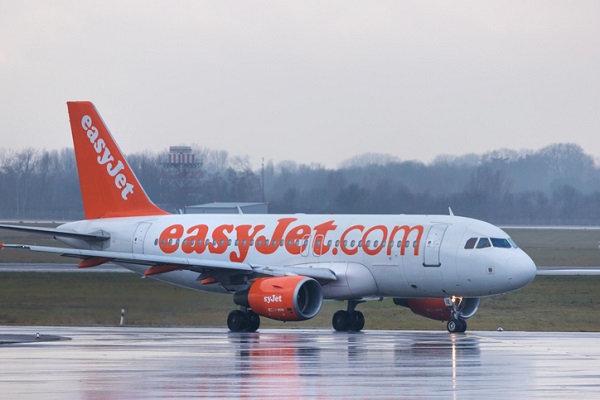ii view: easyJet's optimism fails to keep share price airborne
A smaller loss than expected with summer 2022 bookings proving encouraging. Buy, sell or hold?
6th December 2021 11:22
by Keith Bowman from interactive investor
A smaller-than-expected loss with summer 2022 bookings proving encouraging. Buy, sell or hold?

Full-year results to 30 September
- Revenue down 52% year-over-year to £1.46 billion
- Pre-tax loss of £1.13 billion from a loss of £835 million last year
- Liquidity of £4.4 billion, up from £2.3 billion in 2020
Guidance:
- Second half 2022 revenue booked is ahead of the same period in 2019
- Fourth quarter 2022 capacity expected to be close to Q4 2019 levels
Chief executive Johan Lundgren said:
"easyJet is moving through the pandemic with renewed strength having transformed the business by optimising our network and flexibility, delivering significant cost savings while also step-changing ancillary revenue. These initiatives alongside our strong, investment grade, balance sheet provide easyJet with renewed strength to manage any further Covid related travel disruptions, as well as a platform to fast track our growth and deliver strong shareholder returns.
"In summary, we remain mindful that many uncertainties remain as we navigate the winter, but we see a unique opportunity for easyJet to win customers and take market share from rivals in this period."
ii round-up:
Launched in 1995 and floated on the London stock exchange in 2000, easyJet (LSE:EZJ) is a short-haul European airline operating a fleet of Airbus aircraft.
In its last full pre-pandemic financial year to the end of September 2019, it flew 96.1 million passengers and recorded revenues of over £6 billion.
For a round-up of these latest results, please click here.
ii view:
Measures taken by the Luton headquartered airline to battle the pandemic include cutting costs by a third to £2.59 billion from £3.84 billion in 2020, and raising over £5.5 billion since the start of the Covid-19 crisis. Current first-quarter capacity, or flights operated, is expected to run at 65% of the level flown in the same quarter of the pre-pandemic 2019, before rising in the fourth quarter of 2022 to a level close to that achieved in the final quarter of 2019.
The airline’s initiatives include a focus on its network strategy, or moving aircraft to airports of higher demand, growing its easyJet holidays business in partnership with major hotel brands such as InterContinental Hotels (LSE:IHG) and Accor (EURONEXT:AC), and retaining a strong focus on costs.
For investors, outlook uncertainty and a number of factors outside of management’s control remain high. The discovery of the new Omicron Covid variant is clearly disruptive, and UK government changes to travel rules is seen as unhelpful by the wider travel industry. In addition, rivals such as Wizz Air (LSE:WIZZ) are not standing still as they expand their own aircraft fleets.
More favourably, summer 2022 bookings are proving encouraging. A strengthened balance sheet offers some reassurance, and many of the cost savings achieved during the pandemic will now be carried forward. A previous takeover approach should also not be forgotten. For now, airline shares remain highly speculative and will likely remain volatile near term, but easyJet continues to be seen as a probable long-term winner.
Positives:
- Increased liquidity to over £4 billion
- Growing its aircraft fleet
Negatives:
- Ongoing pandemic uncertainty
- Factors outside of management’s control like the weather can hinder performance
The average rating of stock market analysts:
Strong buy
These articles are provided for information purposes only. Occasionally, an opinion about whether to buy or sell a specific investment may be provided by third parties. The content is not intended to be a personal recommendation to buy or sell any financial instrument or product, or to adopt any investment strategy as it is not provided based on an assessment of your investing knowledge and experience, your financial situation or your investment objectives. The value of your investments, and the income derived from them, may go down as well as up. You may not get back all the money that you invest. The investments referred to in this article may not be suitable for all investors, and if in doubt, an investor should seek advice from a qualified investment adviser.
Full performance can be found on the company or index summary page on the interactive investor website. Simply click on the company's or index name highlighted in the article.